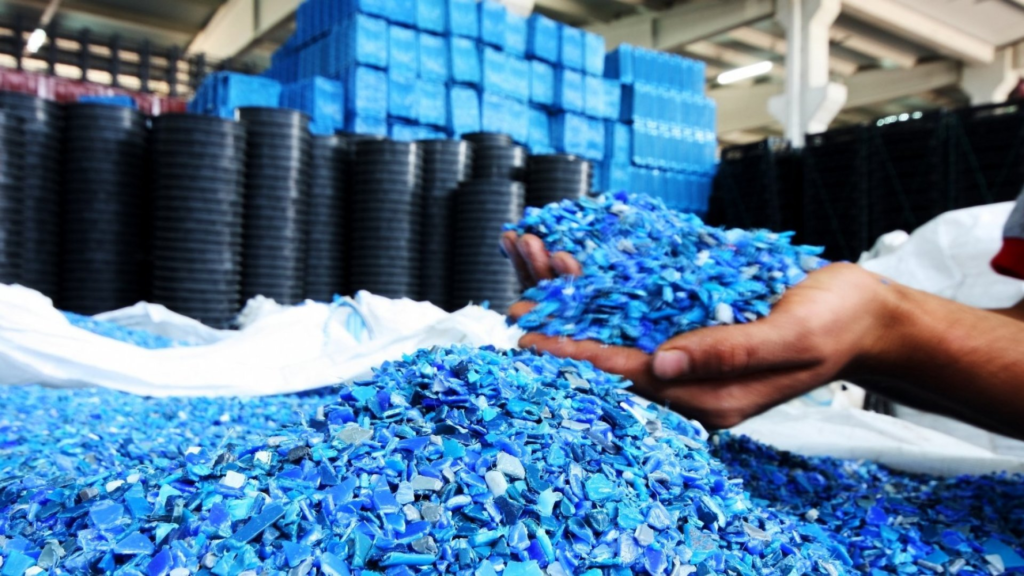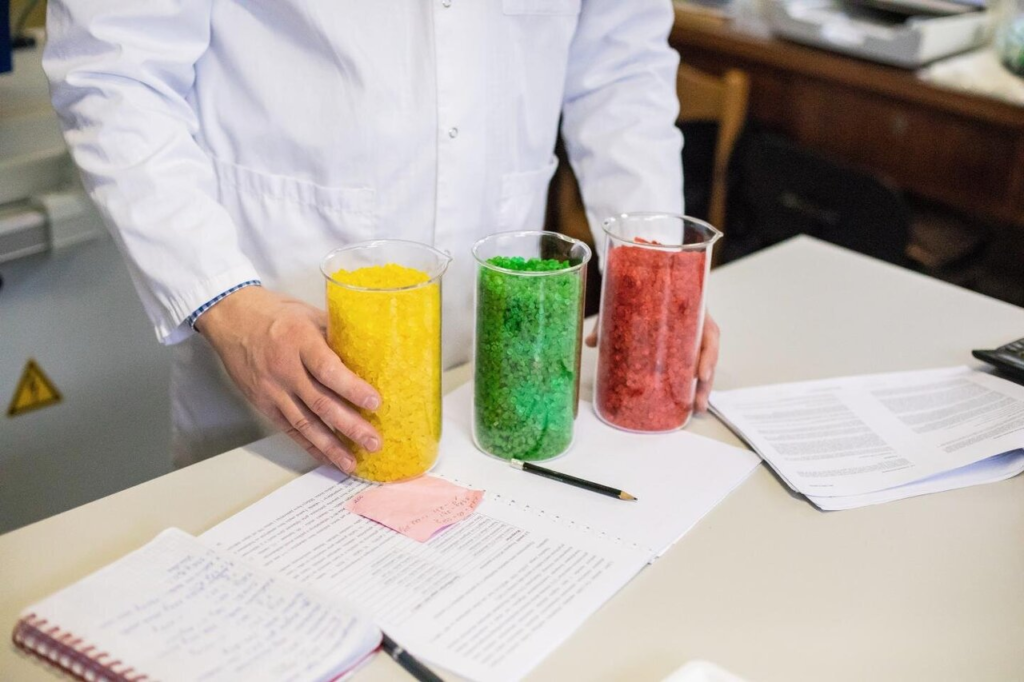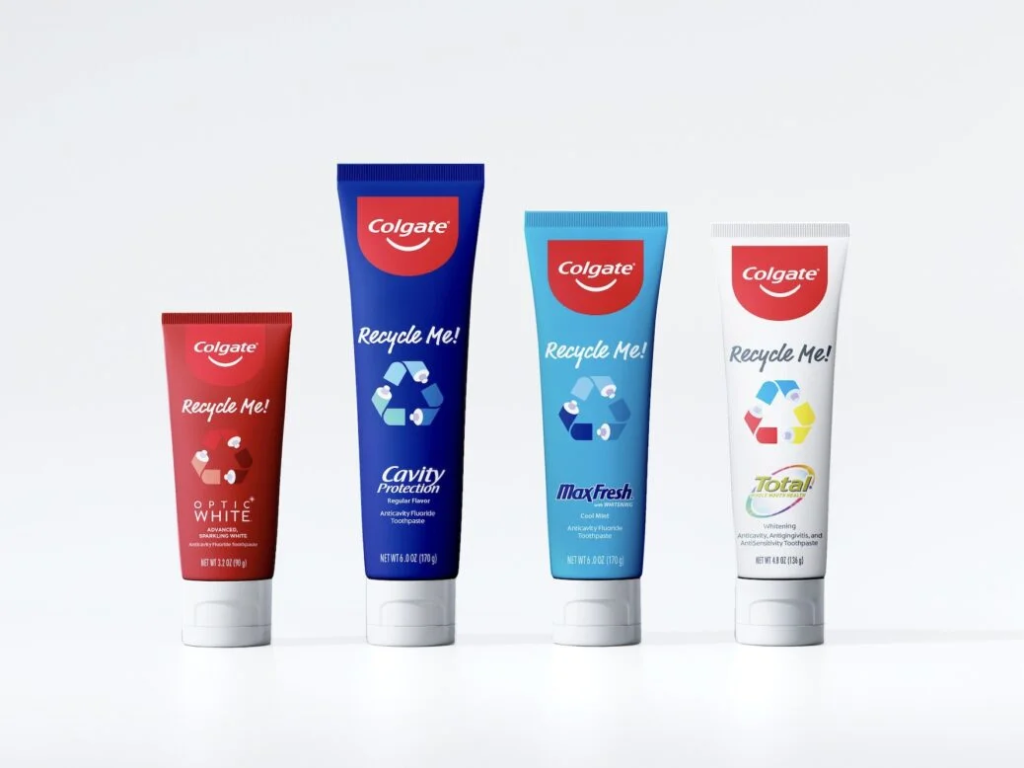
The plastic industry is constantly changing and developing fresh, original concepts for recycled plastics and other products. Discover some of the most recent developments taking place right now in the plastics sector by reading on.
2019 Plastic Industry Developments
Check them out along with the earlier innovations that are set to keep causing waves in the business as we’ve updated our list with some exciting breakthroughs that have happened in 2019.
- Bacteria Capable of Breaking Down Plastics
Ideonella sakaiensis, a bacteria first identified in 2005, has now been demonstrated to eat PET film with a thickness of 0.2 millimetres in around a month, according to a recent article in Asahi Shimbun.

This discovery in the plastic industry could have a significant impact on the future of plastic recycling and disposal, as PET had previously been thought to be nonbiodegradable due to its petroleum-based origin.
The bacteria are currently being studied to ascertain the prerequisites for their enzymes to effectively break down the compounds.
2. Bioplastics for Food Packaging That Biodegrades
The interesting field of bioplastics has produced yet another fascinating discovery in the plastic industry. Scientists at the Kaunas University of Technology in Lithuania have developed a biodegradable plastic that may break down in a compost bin in two years, according to a recent report from Phys.org.
Once this information is made available, it can be used for a variety of things, such as single-use packaging for goods, an alternative to plastic shopping and storage bags, and more.

The fact that the substance the scientists were using, cellulose, needed to be able to be made transparent or semi-transparent to match contemporary plastic packaging items, was one of the obstacles they faced. For these purposes, fluid plastic is created by heating normal plastic, however heating cellulose usually results in burns.
However, transparency and a nontoxic, food-safe container were also made possible by the scientists’ discovery of the proper composites needed to transform cellulose into fluid plastic.
3. Fully Recyclable Toothpaste Tubes
Colgate, a well-known company, has introduced a recyclable toothpaste tube that is the first to be recognized by the Association of Plastic Recyclers as part of their effort to support the green movement.
According to Plastics Today, conventional toothpaste tubes frequently cannot be recycled because they contain a thin coating of aluminium on top of the plastic that makes up the rest of the tube.

However, the material used to make this new tube is high-density polyethylene (HDPE), frequently used to make plastic bottles in the plastic industry. Colgate’s team had to try a range of layering and composite possibilities before getting the correct malleability required for squeezable toothpaste tubes.
2017 Plastic Industry Developments
4. Plastic Roads
In an interesting development in the plastic industry in recycling, VolkerWesser, a construction company, has created PlasticRoad, a lightweight roadway design that requires less time to construct than conventional roads and requires almost no maintenance.

Recently, a post on Mashable was published emphasising this remarkable development. According to them, plastic roads would be an excellent sustainable alternative to asphalt, which is brittle, unsustainable, and emits more than 1.6 million tonnes of carbon dioxide annually.
5. Tennis Shoes Made from Ocean Plastic
How about wearing plastic tennis shoes instead of using plastic to construct roads? Adidas has recently revealed that they will be selling shoes made from recycled ocean debris.

The Ultra Boost Parley, a component of their Parley line, was created in cooperation with Parley for the Oceans. Parley was successful in removing 740 tonnes of plastic waste from the Indian Ocean close to the Maldives in 2016. Adidas uses that garbage to create some of the shirts and shoes in this line.
By the end of 2017, at least one million pairs of tennis shoes will be produced, according to Adidas. That is the equivalent of recycling about 11 million plastic bottles!
Read More:
5 Shortest Flights in the World